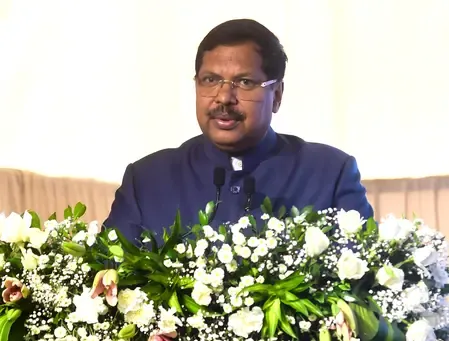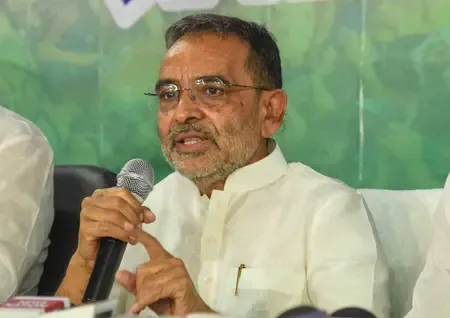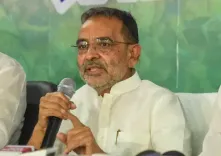Has the Maha Cabinet Approved the Formation of a State Scheduled Tribes Commission?

Synopsis
Key Takeaways
- Maharashtra Cabinet approves the formation of a Scheduled Tribes Commission.
- Budget of Rs 4.20 crore allocated for operational expenses.
- Commission aims to address the unique needs of tribal communities.
- Compensation for farmers affected by unseasonal rains approved.
- Statutory status will enhance the commission's authority.
Mumbai, June 3 (NationPress) – The Maharashtra Cabinet, led by Chief Minister Devendra Fadnavis, has officially sanctioned the creation of the state's Scheduled Tribes Commission. The cabinet also authorized the establishment of necessary posts and funding for operational expenses associated with the commission.
A government statement noted, "At the central level, there exist two distinct commissions for Scheduled Castes and Scheduled Tribes in the nation. The topics pertaining to these commissions are considerably different, necessitating the establishment of two independent bodies. Additionally, during the 51st Tribal Advisory Council meeting, a recommendation was made to form a separate Scheduled Tribes Commission in Maharashtra. Hence, this commission is being established."
The Maharashtra State Scheduled Castes Commission will consist of a chairman and four non-official members, managing a total of 26 positions to ensure daily operations.
For these roles, the cabinet has allocated a budget of Rs 4.20 crore, which will cover salaries, allowances, and various office-related expenses such as space, furniture, electricity, telephone, fuel, and other ancillary costs for commission members.
The cabinet emphasized that the State Scheduled Castes Commission will operate independently. Furthermore, in-principle approval has been granted to confer statutory recognition to both commissions.
In a separate agenda, the cabinet addressed the issue of compensating farmers affected by unexpected rains in various regions of Maharashtra. A review of damage to harvested crops due to these rains was conducted, prompting several ministers to advocate for financial aid to farmers for their agricultural losses.
As per the presentation by Relief and Rehabilitation Principal Secretary Sonia Sethi, a previous cabinet meeting on May 27 suggested allocating funds for immediate repairs and reconstruction of damaged houses. Consequently, a fund of Rs 49 crore has been set aside for this purpose. The allocation includes Rs 5 crore for the Konkan division, Rs 12 crore each for the Pune and Chhatrapati Sambhaji Nagar divisions, Rs 5 crore for Nashik, Rs 10 crore for Nagpur, and Rs 5 crore for Amravati.
Additionally, the compensation rates and guidelines for crop losses due to natural disasters as established by the Central or State Government for Kharif 2025 and beyond will adhere to the government resolution dated March 27, 2023. Previous instructions from January 1, 2024, have been overridden, stated Sonia Sethi.
During discussions, Forest Minister Ganesh Naik and Port Development Minister Nilesh Rane noted that rainfall has also adversely affected the dry fish industry and called for compensation for fishermen. Following this, CM Fadnavis instructed the relief and rehabilitation department to draft a proposal.
Public Works Minister Shivendrasinhraje Bhosale pointed out that the rains have damaged roads and small bridges, suggesting they be repaired. Excise Minister Shambhuraj Desai urged the Rural Development Department to expedite road repairs in rural areas. CM Fadnavis directed that repairs in regions under red alert in the past fifteen days should be prioritized.
Additional Chief Secretary of the Water Resources Department Deepak Kapoor informed the cabinet that there is currently 14.5 TMC of water stored in the Ujani Dam, 28 TMC in the Jayakwadi Dam, and 3.72 TMC in the Gosikhurd Dam. The water scarcity situation has improved, with 200 fewer villages now requiring tanker supplies, and the number of tankers has decreased by 336.
Water delivery via tankers is ongoing in the Chhatrapati Sambhaji Nagar and Jalna districts, according to Sanjay Khandare, Principal Secretary of the Water Supply and Sanitation Department.









